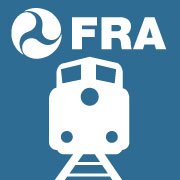
Federal Railroad Administrator Ron Batory in a Jan. 14 letter to union leaders denied a request from the SMART Transportation Division (SMART-TD) and the Brotherhood of Locomotive Engineers and Trainmen (BLET) to issue an emergency order to safeguard passenger rail travelers and workers, even in the face of known threats and the potential for violence, according to the FBI.
“Regrettably, we received a response from FRA Administrator Ron Batory that denied our Emergency Order request from earlier this week,” SMART-TD President Jeremy R. Ferguson said. “It seems that the safety-first mentality has fleeted under his watch and now the agency is not even willing to strengthen or increase enforcement actions against those that may do harm to the people, equipment, or infrastructure of this nation’s rail system – a complete deviation from FAA, its sister agency under the same DOT umbrella.
“FAA has announced extremely aggressive measures to deter those willing to do harm from boarding commercial aircraft. It’s sad that FRA refuses to do the same.”
In his letter, Batory deferred to the Department of Homeland Security (DHS), which oversees the Transportation Security Administration (TSA), and encouraged rail labor to work with the carriers on bulking up security. This is in spite of the FRA being the primary agency responsible for regulating and enforcing passenger behavior, including the interference or assault of a train crew.
“While your petition correctly notes the differences in statutory and regulatory authorities between the Federal Aviation Administration and the FRA, which evolved based upon operational differences and legislative considerations, these differences do not provide a basis for FRA to take the requested action,” Batory responded. “Accordingly, FRA declines to grant your request for an emergency order. In addition, FRA does not believe it would be appropriate to introduce such an emergency order into the long-standing, well-established law enforcement partnerships between railroads and Federal, state, and local agencies.
“Consistent with your stated willingness ‘to work with the applicable agencies,’ we encourage you to work with railroads as they coordinate to provide for safe passenger rail service at the upcoming Inauguration and beyond,” Batory wrote.
Leaders from both SMART-TD and the BLET, two of the nation’s largest railroad labor unions, expressed concerns to FRA on Jan. 11 and to DHS on Jan. 13 about security vulnerabilities in passenger rail service in the wake of the Jan. 6, 2021, insurrection that occurred at the U.S. Capitol. While airport and air travel security administered by the FAA is well-equipped to react to bar those suspected of causing violence from air travel, no such measures are in place for passenger rail.
“Realizing years of neglect cannot be fixed overnight, we are demanding that significant changes to passenger rail protocol be granted immediately to protect against the imminent threat of danger that exists today,” President Ferguson and BLET President Dennis R. Pierce said. “It is our recommendation, as a minimal standard, that any regulation granted to prohibit the interference of a train crew’s duty be in line with that of aviation statutes and regulations.”
Among the remedies suggested by the union leaders to FRA was the establishment and implementation of a “No-Ride List,” which would mirror the FAA’s “No Fly List” and restrict people from using passenger rail. This solution also was shared with the DHS in the Jan. 13 emergency order request.
Amtrak, the nation’s largest passenger rail carrier, in a statement released Jan. 14 from CEO Bill Flynn, said that it was in favor of a “No-Ride List.”
“There is nothing more important than the safety of our employees. Since the start of the pandemic, our dedicated frontline employees have kept our trains running, providing a vital transportation service to essential workers. We join our labor partners in continuing to call upon Congress and the Administration to make assaults against rail workers a Federal crime, as it is for aviation workers, and to expand the TSA’s “No Fly List” to rail passenger service,” Flynn said.
“After last week’s violent attack on the U.S. Capitol, we are taking extra steps to continue ensuring the safety of our employees and customers in Washington DC and across our network as we prepare for the Inauguration. In addition to limiting ticket sales and requiring masks to be worn at all times, we are increasing our police enforcement to ensure strong compliance, remove noncomplying customers and ban those that don’t follow our policies,” Flynn said. “This includes deploying additional Amtrak Police officers onboard our trains and in our stations to support our frontline staff, and utilizing additional support from TSA and partner law enforcement agencies.”
As a precaution in advance of the inauguration of President-elect Joe Biden next week, two regional passenger rail carriers have announced service changes. The Maryland Department of Transportation stated it was halting traffic on three MARC lines from Jan. 17th to the 20th. Virginia Railway Express (VRE) said it will not operate trains Monday, Jan. 18 through Jan. 20 as well, citing security concerns.
DHS continues to weigh the emergency order request from the unions to implement a “No-Ride List” despite Batory’s rejection of the unions’ emergency order request and FRA’s failure to act.
Related News
- New Jersey Train Length, Crew Size Law Awaits Governor’s Signature
- CSX Conductor, Single Mother Devastated in Head-on Collision
- SOFA Safety Alert
- AJFL Scholarship Application Opens Soon
- SMART-TD Applauds FRA and DOT for Strengthening Cross-Border Rail Safety Protections
- Regional Training Seminars coming to St. Paul, Baltimore in 2026
- Transit Funding Boost Proposed by SMART-TD Backed Bill
- California SMART-TD Brother Killed on the Job
- Union Mourns the Loss of Brother Charles Harrison
- FRA Issues Grade-Crossing Safety Advisory